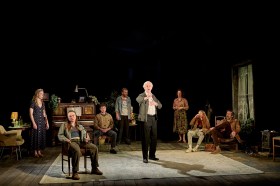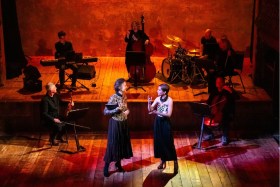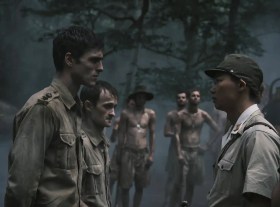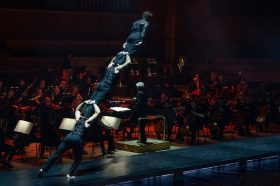In 2001, while reporting on the crisis in Afghanistan, award-winning foreign affairs journalist Robert Fisk was attacked near the border in Pakistan. The news reporter became part of the news. He documented his story in The Independent, to set the record straight, writing “I thought I should write about what happened to us in this fearful, silly, bloody, tiny incident. I feared other versions would produce a different narrative, of how a British journalist was ‘beaten up by a mob of Afghan refugees’… If I was an Afghan refugee in Kila Abdullah, I would have done just what they did. I would have attacked Robert Fisk. Or any other Westerner I could find”.
Fisk has been described by the New York Times as probably the most famous foreign correspondent in Britain and has over 30 years of experience, reporting from war zones across the world. His account of the attack was characteristically personal, political, compassionate, and vivid:
“The only thing that shocked me was my own physical sense of collapse, my growing awareness of the liquid beginning to cover me. I don’t think I’ve ever seen so much blood before. For a second, I caught a glimpse of something terrible, a nightmare face – my own – reflected in the window of the bus, streaked in blood, my hands drenched in the stuff like Lady Macbeth, slopping down my pullover and the collar of my shirt until my back was wet and my bag dripping with crimson and vague splashes suddenly appearing on my trousers.”
A vision of Lady Macbeth, in the midst of all this fighting? “Yet who would have thought the old man to have had so much blood in him?” (Act V, Scene 1, Macbeth).
Robert Fisk has been invited to speak on the topic of Shakespeare and War at the Royal Shakespeare Company, as part of a series of talks from leading politicians, commentators and authors.
Arts Hub spoke to Robert Fisk, who was in Cairo. He says that he did indeed think about the image of Lady Macbeth and that famous line from Shakespeare as he was being attacked by, as he describes them, “Afghans whose families had been killed”. But he also wondered how long does it take to die? as he looked at the young men with “wolf like eyes”.
Fisk believes that although Shakespeare was never in a war or conflict zone as far as we know, that it’s clear that he must have talked to others who had been in this situation – one Fisk knows only too well. “He describes it so vividly. Elizabethan times were a very violent age. He must have talked to his fellow men who had experienced violence. I find when I read passages of Shakespeare when I’m in a conflict zone, it’s very close to home. If you take Saddam Hussein and compare it to stories in Titus Andronicus, there are parallels.”
Fisk lives in Beirut, the scene of conflict over many years, including last year. He says Shakespeare was even performed, in Arabic of course, during the civil war in Lebanon.
As someone who has lived in, and visited so many war zones, what does he think the arts can offer people in a warzone, if anything? “This raises interesting questions” he replies. “Local artists do participate and use art as a form of expression in conflict. They might be artists in Lebanon, or Baghdad. In Lebanon there have been many films created in the last year, and in fact over the last year you’d think the cinemas would have shut but during the attacks there was actually an increase in attendances.”
He gives as an example Scorched, a “powerful play” by a Lebanese-born French Canadian Wajdi Mouawad about a woman’s hunt for her child. Set in a place that is clearly Lebanon, “it’s about war, passion and patriotism”.
“It’s based around real events”, Fisk says, “Shakespeare based his plays on real people, and more Lebanese are doing this do, about conflict, although they might change some of the specifics in the events.”
After watching Scorched performed in Canada, Fisk tells how he went backstage to meet the actors and actresses, some of whom had no idea that they were, in some cases, playing real people. In a curious twist of art and reality, he says that one of the torturers who was depicted in Scorched is believed to have escaped Lebanon in real life and set up a business only a few miles away from the theatre in Toronto. He directs me to a column he wrote recently for The Independent.
“For me it’s not just about Shakespeare and War, it’s about Art and War,” he concludes.
Fisk is in conversation at the RSC’s Broadside Brunch with an as yet unnamed personality, so he couldn’t give too much away about what’s on the agenda. But as he says, “it’s more fun if you don’t plot it out too much”, and he’s looking forward to the audience getting involved in the debate.
Editor’s note: Robert Fisk will be at the RSC in Stratford-Upon-Avon on Sunday 1 April from 11am. Tickets cost £15 with brunch or £10 without. For further details and booking call the RSC ticket hotline on 0844 800 1110 or book online at www.rsc.org.uk.




